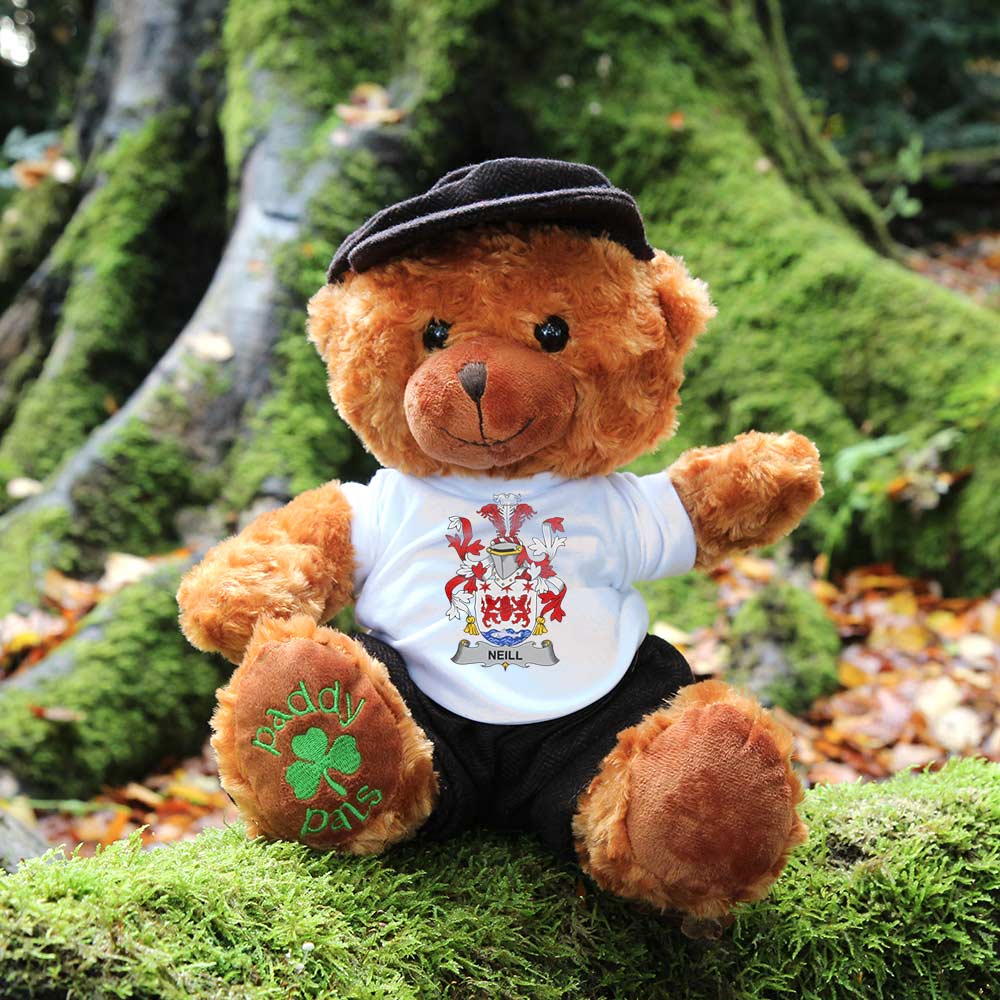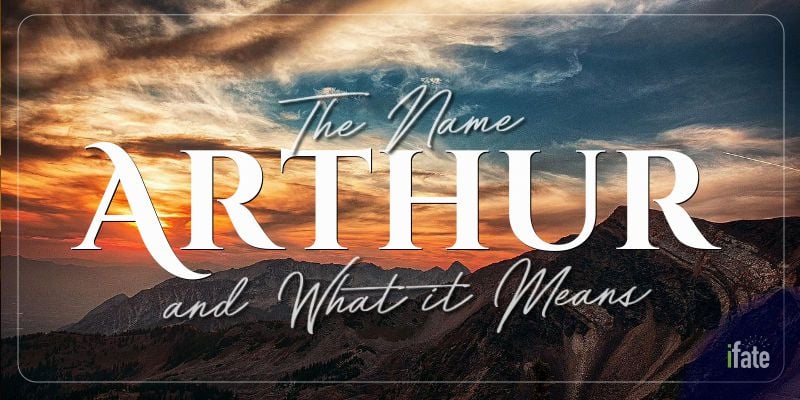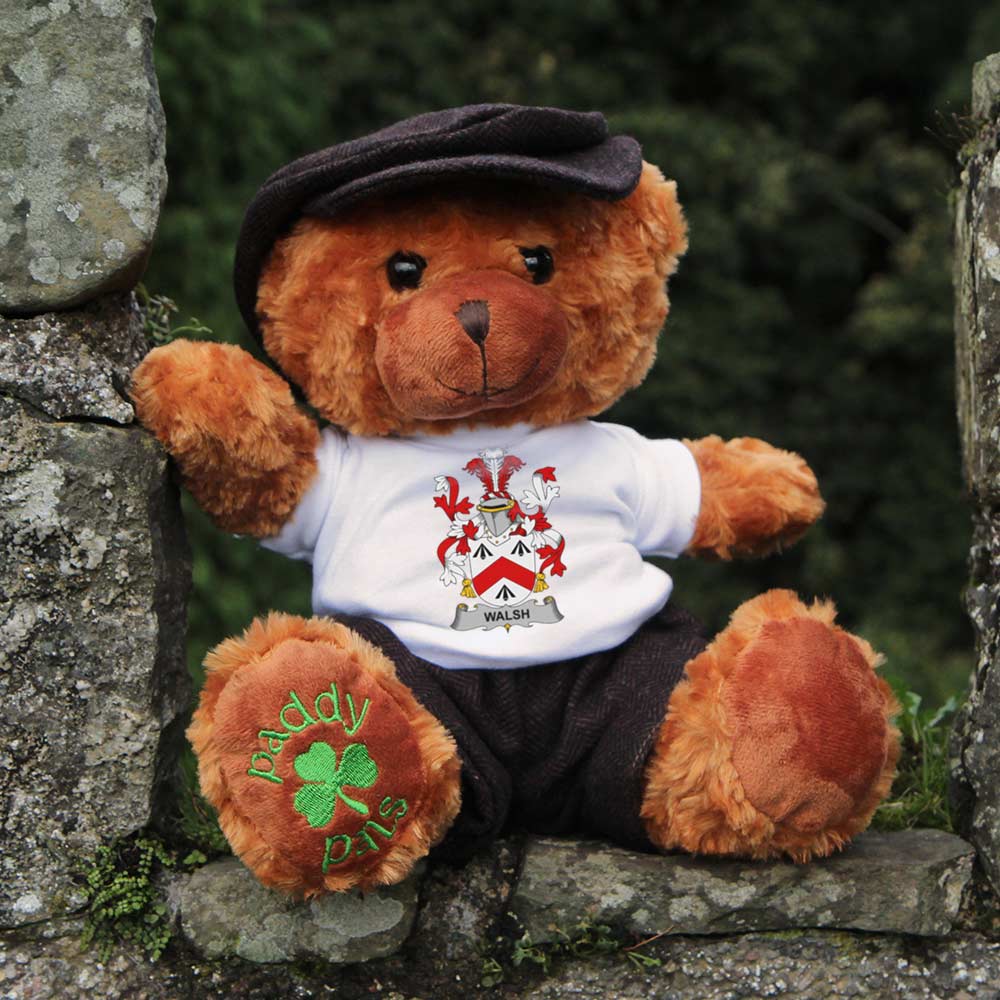What Does Arthur Mean In Irish? Unraveling A Celtic Mystery
Have you ever wondered about the true origins of names, especially those that feel so ancient and steeped in tales? So, the name Arthur, for instance, conjures up images of legendary kings, brave knights, and magical swords, doesn't it? It’s a name that has certainly traveled through centuries, picking up stories and different meanings along the way. But when we think about its connection to Ireland, things get just a little more interesting, and perhaps, a bit more complex than you might first imagine.
Many people assume that because Arthur is so famously linked to Celtic stories, it must have a direct, obvious Irish meaning. That's a very common thought, and it’s actually a good place to start our exploration. Understanding the journey of a name, like figuring out when to use "do" or "does" in English, helps us truly grasp its depth and history. It’s all about tracing back the linguistic threads, you know, to see where they lead.
Today, we're going to take a closer look at what the name Arthur truly means, especially when we consider its ties to the Emerald Isle. We’ll explore its likely origins, see how it might have been understood in ancient Celtic languages, and sort out some of the common ideas people have about it. So, get ready to discover the fascinating story behind this powerful and beloved name, and what it means for Irish heritage, if anything at all.
- Did Laura Ingraham Get Married
- Ali C Lopez
- Keegan Bradley Wiki
- Is Jim Nantz Married
- Where Do The Kalogeras Sisters Live
Table of Contents
- The Enduring Charm of the Name Arthur
- Tracing Arthur's Roots: Is it Truly Irish?
- The Irish Perspective: Meanings and Legends
- Common Misconceptions About Arthur's Irish Link
- Beyond the Name: The Legacy of Arthur
- Frequently Asked Questions About Arthur and Irish Connections
The Enduring Charm of the Name Arthur
The name Arthur carries a certain weight, doesn't it? It's a name that feels old, strong, and full of stories. When you hear "Arthur," your mind probably goes straight to King Arthur, the legendary ruler of Camelot, with his Round Table and the quest for the Holy Grail. This figure, you know, has captivated people for centuries, making the name itself feel regal and quite heroic. It's a name that has seen a lot of use through the ages, and it continues to be a favorite for parents even today, which is rather interesting.
A Name Heard Across Cultures
You find variations of Arthur in so many different languages and cultures, it's almost like a universal symbol of strength and leadership. For instance, in French, you might hear "Artus," or in Spanish, "Arturo." Each version, you see, carries a little piece of its own cultural flavor, but they all point back to that central, powerful figure. It's a name that has truly traveled, spreading its influence far and wide, and that’s a pretty remarkable thing for a single word to do, wouldn't you say?
Tracing Arthur's Roots: Is it Truly Irish?
Now, let's get to the heart of our question: Is Arthur truly an Irish name? Well, this is where it gets a little bit nuanced, in a way. The most widely accepted academic view is that the name Arthur doesn't have direct, deep roots in the traditional Irish Gaelic language as a native name. That might be a surprise to some, given how much Celtic culture is intertwined. The main connections for the name Arthur are generally found elsewhere in the Celtic world, specifically with the Welsh. So, while it feels Celtic, its primary home isn't actually Ireland, at least not originally.
The Welsh Connection: Artorius and Arth
Most scholars agree that the name Arthur likely comes from a Roman family name, "Artorius." This name, you know, was quite common in the Roman Empire, and it probably made its way into Britain with the Roman legions. Over time, as the Romans left, this name was adopted and changed by the native Britons, particularly the Welsh. In Welsh, the word for "bear" is "arth," and "man" is "gur." So, "Arthur" could have evolved from something like "Art-gur," meaning "bear-man" or "noble bear." This connection to the bear, a powerful and noble creature, really gives the name a sense of strength, doesn't it? It's a pretty compelling theory, and it's widely accepted as the most probable origin for the legendary king's name.
Early Irish Names and Similarities
While Arthur itself isn't a native Irish name, it's worth looking at early Irish names that might sound similar or share some thematic elements. For example, there are Old Irish names like "Art," which means "bear" or "stone," and "Artúr," which is the Irish form of Arthur, adopted much later. These names, you see, show that the concept of "bear" as a strong symbol was present in Irish culture too. However, "Artúr" is typically seen as a borrowing from Welsh or English, rather than a purely indigenous Irish name. It’s important to distinguish between names that sound alike and names that share a direct, original linguistic lineage. You know, sometimes a name just gets popular and then gets adapted, which is pretty much what happened here.
The Irish Perspective: Meanings and Legends
Even if Arthur isn't originally Irish, its presence in Ireland, particularly in more recent centuries, has given it a place in the country's naming traditions. People in Ireland have certainly embraced the name, and it carries the same connotations of bravery and legend there as it does elsewhere. It's not uncommon to find someone named Arthur in Ireland today, and it's often chosen for its classic feel and its connection to those grand stories, which is actually quite lovely.
Arthur as "Noble Bear" or "Bear Man"
The most common meaning associated with Arthur, regardless of its direct Irish origin, is "bear" or "noble bear," or even "bear man." This interpretation comes from the Welsh "arth" for bear, as we discussed. In many ancient cultures, the bear was seen as a symbol of strength, courage, and even royalty. So, when someone is named Arthur, they are, in a way, given a name that speaks to these powerful qualities. It's a very evocative meaning, and it's easy to see why it has resonated with so many people over time, you know, really giving the name a certain gravitas.
Arthur in Irish Mythology and Folklore
It's interesting to consider if there are any direct links between King Arthur's legends and Irish mythology. While the core Arthurian tales are firmly rooted in Welsh and British traditions, there are some scholarly discussions about possible cross-pollination between Celtic mythologies. For example, some motifs or character types might appear in both Irish and Welsh stories. However, there isn't a prominent figure named Arthur who plays a central role in the ancient, native Irish mythological cycles like the Ulster Cycle or the Fenian Cycle. The Arthurian legends, as we generally know them, are quite distinct from traditional Irish sagas. So, while both are rich in Celtic lore, their main characters and storylines tend to be separate, at least for the most part, you know.
Any mention of Arthur in Irish folklore is more likely to be a later adoption or influence from the widespread British Arthurian narratives rather than an original, indigenous figure. It's a bit like how stories travel and get retold in different places; they might pick up local flavors but retain their core identity. Therefore, if you're looking for a deep, ancient Irish mythical figure named Arthur, you might be a little disappointed. The Irish heroes, like Cú Chulainn or Fionn mac Cumhaill, have their own distinct and powerful stories, which are very much worth exploring in their own right. They are, in a way, the Irish equivalent of those legendary figures, and they are absolutely fascinating.
The Popularity of Arthur in Ireland
Despite not being an original Irish name, Arthur has certainly been used in Ireland. It gained popularity, probably, through the widespread influence of the British monarchy and the general appeal of the Arthurian legends. In fact, you'll find it appearing in Irish birth records and family histories, especially from the 19th and 20th centuries. It's a name that has been embraced, just like many other names of non-Irish origin that have become common there. So, while it doesn't carry an ancient Gaelic meaning directly from Irish soil, it has become a familiar and respected name within Irish society, which is actually quite lovely to see.
Common Misconceptions About Arthur's Irish Link
One of the biggest misconceptions is that Arthur is a native Irish Gaelic name, perhaps with an ancient meaning directly from Irish. As we've seen, its strongest etymological ties are to Welsh and Latin. People often confuse "Celtic" with "Irish," assuming that anything Celtic must automatically be Irish. While Ireland is a Celtic nation, the Celtic linguistic family is broad, including Welsh, Scottish Gaelic, Breton, and Cornish. So, a name being Celtic doesn't automatically make it Irish Gaelic. It's a subtle but important distinction, you know, to really get the history right.
Another common idea is that King Arthur himself had direct, significant ties to Ireland in the original legends. While there might be some minor references or later additions in certain versions of the tales, the core narrative of King Arthur is centered in Britain, particularly in places like Wales and Cornwall. There isn't a strong, ancient tradition of King Arthur being an Irish king or having his primary seat of power in Ireland. This misconception probably comes from the general popularity of Celtic themes and the tendency to blend different cultural stories over time, which is pretty understandable, honestly.
It's also sometimes believed that there's a specific, hidden "Irish meaning" for Arthur that is distinct from its common "bear" interpretation. However, linguistic research generally points to the "bear" meaning as the most likely origin across all Celtic languages where it might have been adopted. So, if you hear someone say Arthur has a unique, ancient Irish meaning that's completely different, it's probably not accurate based on current etymological understanding. You know, sometimes a name just means what it means, and its journey is what makes it interesting.
Beyond the Name: The Legacy of Arthur
Regardless of its precise etymological journey or its direct Irish roots, the name Arthur continues to hold a special place in the hearts of many. It’s a name that speaks to enduring qualities like courage, leadership, and a sense of destiny. For parents choosing the name today, it’s often about connecting to that rich tapestry of legend and history, rather than a specific linguistic origin. It’s a classic choice that has stood the test of time, and it carries with it a sense of nobility and adventure. You know, some names just have that certain something, and Arthur is definitely one of them.
The story of the name Arthur, and its less direct but still present connection to Ireland, reminds us how names travel, change, and become part of new cultures. It shows us that even if a name isn't originally from a certain place, it can still be adopted and loved there, taking on new significance. This journey of names is a fascinating field of study, and it tells us a lot about history, migration, and the ways in which cultures influence one another. It’s a pretty cool thing to think about, actually, how words move through time and space.
Frequently Asked Questions About Arthur and Irish Connections
Is Arthur an Irish name?
While Arthur is widely used in Ireland and has a long history there, it is not considered an originally native Irish Gaelic name. Its primary origins are thought to be Welsh and Latin, with the name being adopted into Irish culture over time. So, it's more of an adopted favorite, you know, rather than a truly ancient Irish one.
What is the Gaelic form of Arthur?
The Irish Gaelic form of Arthur is "Artúr." This form, however, is generally seen as a borrowing from the Welsh or English versions of the name, rather than an independent, ancient Irish creation. It's a way the name was adapted to fit the sounds of the Irish language, which is pretty common for names that travel.
What does the name Arthur mean in general?
The most widely accepted meaning for the name Arthur comes from the Welsh word "arth," meaning "bear." So, the name is often interpreted as "noble bear" or "bear man." This meaning highlights strength, courage, and a powerful presence, which is really fitting for a legendary king, don't you think?
If you're interested in exploring more about Irish names and their fascinating origins, you can learn more about Irish name traditions on our site. Or, perhaps, you might want to discover the stories behind other popular names by checking out this page our name origins guide. There's a whole world of meaning waiting to be uncovered, you know, just like understanding the subtle differences in grammar can open up new ways of speaking.
For a deeper academic look into the etymology of names, including Arthur, you might find resources like the Oxford English Dictionary quite helpful. They often provide detailed historical linguistic information that can really shed light on a name's journey through time. It's always good to check out reliable sources for these kinds of things, you know, to make sure you're getting the most accurate information.

Arthur Family Crest Teddy Bear | Buy the Arthur Irish Coat of Arms Bear

The First Name "Arthur": What it means, and why numerologists love it

Arthur Family Crest Teddy Bear | Buy the Arthur Irish Coat of Arms Bear